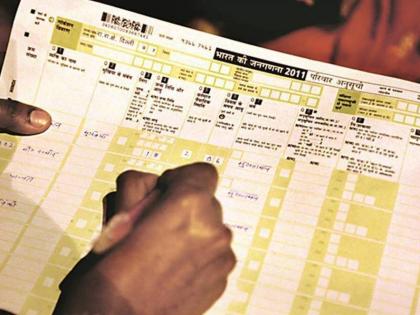Caste Census, a Long-Awaited Move!"
By Vijay Darda | Updated: May 5, 2025 07:24 IST2025-05-05T07:23:23+5:302025-05-05T07:24:05+5:30
Fair opportunity for the deprived only can bring about true social change and create new development avenues.

Caste Census, a Long-Awaited Move!"
Analysis of data obtained from caste census will help us adopt new approach
No matter how much we criticise the caste and class system, the social reality remains that our society is still entangled in them. Even today, society appears divided along caste lines. In such a scenario, there has been a consistent demand for a caste-based census so that comprehensive data on the deprived sections can be collected. After all, only when we have data will we be able to understand how many people belong to which caste, what changes have occurred in their lives and what their needs are. Although delayed, the Modi government has made a historic decision that the next census will be caste-based.
I fully agree with this decision by the Modi government. However, it is equally important to ensure that this extremely sensitive issue is not exploited for political gain in any form. That said, the truth is also that once the data is available, attempts to take advantage of it will inevitably be made. This is evident from the political debates surrounding the caste surveys in Bihar and Karnataka. Still, we cannot turn away from something that is necessary now!
The former Chief Justice of the Supreme Court Justice N V Ramana rightly stated that caste and caste-based discrimination are harsh realities of our society. For a long time, we have denied this, but now the time has come for us all to work together. India is full of diversity. Until we collect authentic data, it is impossible to see the bigger picture or formulate a scientific strategy for the holistic progress of our people and our nation. We should hope that this step will help bridge the socio-economic divide and ensure all sections of society receive their fair share of power and prosperity.
The demand for a caste census has existed for a long time. In fact, caste has played a pivotal role in the development of regional political parties. Many castes have long felt that they are not receiving adequate social, political or economic representation proportional to their numbers and this is largely true. That is why various political parties have raised this issue strongly, though past Central governments have avoided it due to the fear that it might lead to increased social division. In 1979, the then Janata Party government constituted the Mandal Commission to provide appropriate reservation to the backward classes. However, the move triggered protests, and the issue of caste census became directly linked with reservation. As a result, the analytical benefits of caste-based data were sidelined, and no government dared to take it up again. The argument often given was that if our Constitution speaks of equal opportunity for all and we are striving to abolish the caste and class system, how can conducting a caste census be justified? Dr Babasaheb Ambedkar had said that caste-based discrimination is the biggest curse on our society and therefore, it is necessary to promote inter-caste marriages to eradicate it.
India's history of caste census is quite old. During British rule, the first attempt to count population on the basis of caste was made in the 1872 census. Whatever motive the British may have had, this was the first time it became known how many people belonged to which caste. Thereafter, this continued every 10 years until 1931. After independence, the 1951 census collected data on Scheduled Castes (SCs) and Scheduled Tribes (STs), but not on the number of people in the Other Backward Classes (OBCs) or general category. Whenever the issue of caste census has reached the Supreme Court, it has often stalled on the point that the Constitution does not permit a census based on caste.
In 2010, a large number of MPs demanded a caste census and the then Congress government agreed. In 2011, a caste census was conducted in the social and economic context, but the data was never made public. The absence of data ruled out any analysis, whatsoever. In September 2024, when the Rashtriya Swayamsevak Sangh (RSS) stated that it had no objection to a caste census, the BJP also came out in support. RSS' national publicity head Sunil Ambekar rightly said that caste census data should assist in policy-making and should not be used for electoral purposes. Let us all hope for the same too. Similarly, the caste census should be conducted in a time-bound manner. I also hope that the communities which have so far not received the benefits of development will benefit from the intended objectives of this exercise. Only time will tell whether caste-based census will bring justice to all. But my suggestion is that a separate category should be included in the census for the economically weaker sections so that people from all backgrounds can benefit.
Congratulations to Prime Minister Narendra Modi for taking this bold step! Congratulations also to Rahul Gandhi, Akhilesh Yadav and Tejashwi Yadav, who have firmly stood in support of the caste census!
The author is the chairman, Editorial Board of Lokmat Media and former member of Rajya Sabha.